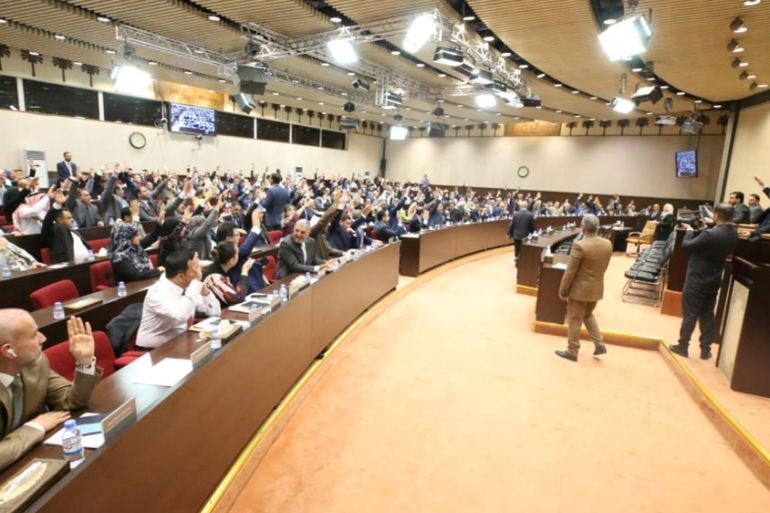Iraqi parliament approves new electoral law as deadlock persists
Law allows voters to elect individual legislators instead of choosing from party lists and sets out new constituencies.

Iraq’s parliament has approved a new electoral law, a key demand of protesters to make elections fairer, but political deadlock is still holding up the selection of an interim prime minister.
Mass protests have gripped Iraq since October 1 and protesters, most of them young, are demanding an overhaul of a political system they see as profoundly corrupt and keeping most Iraqis in poverty. More than 450 people have been killed.
Keep reading
list of 3 itemsIraq protests: Increase in number of disappearances
Iraq must ‘take actions’ after attacks on US interests
The new election law passed by parliament on Tuesday will allow voters to elect individual legislators instead of choosing from party lists, and have each member of parliament represent a specific electoral district instead of groups of legislators representing entire provinces.
“In the name of Iraq, and in the name of the Iraqi people, in the name of the martyrs, in the name of all those who sacrificed, in the name of the displaced, the law has been approved,” Council of Representatives Speaker Mohammed al-Halbousi said after the vote.
But protesters are demanding not just a new electoral law, but also the removal of the entire political class and an independent prime minister with no party affiliation.
Prime Minister Adel Abdul Mahdi resigned last month under pressure from the street demonstrations, but has remained in office in a caretaker capacity.
Negotiations over a candidate to replace him have remained deadlocked since the latest in a series of deadlines expired at midnight on Sunday.
Demonstrators on Tuesday gathered outside Baghdad’s iconic Tahrir Square where they made clear their opposition to names touted by the establishment to fill the post of prime minister.
The main avenues and roads in cities in the south of the country, the epicentre of the months-long protest movement, were blocked, as well as entrances to schools, universities and government buildings.
While a pro-Iran camp has tried to impose a candidate, Iraqi President Barham Saleh has reportedly put up resistance.
For many protesters, the system installed by the United States after it led a military coalition to overthrow longtime leader Saddam Hussein in 2003 has become overly beholden to Iran and is beyond reform.